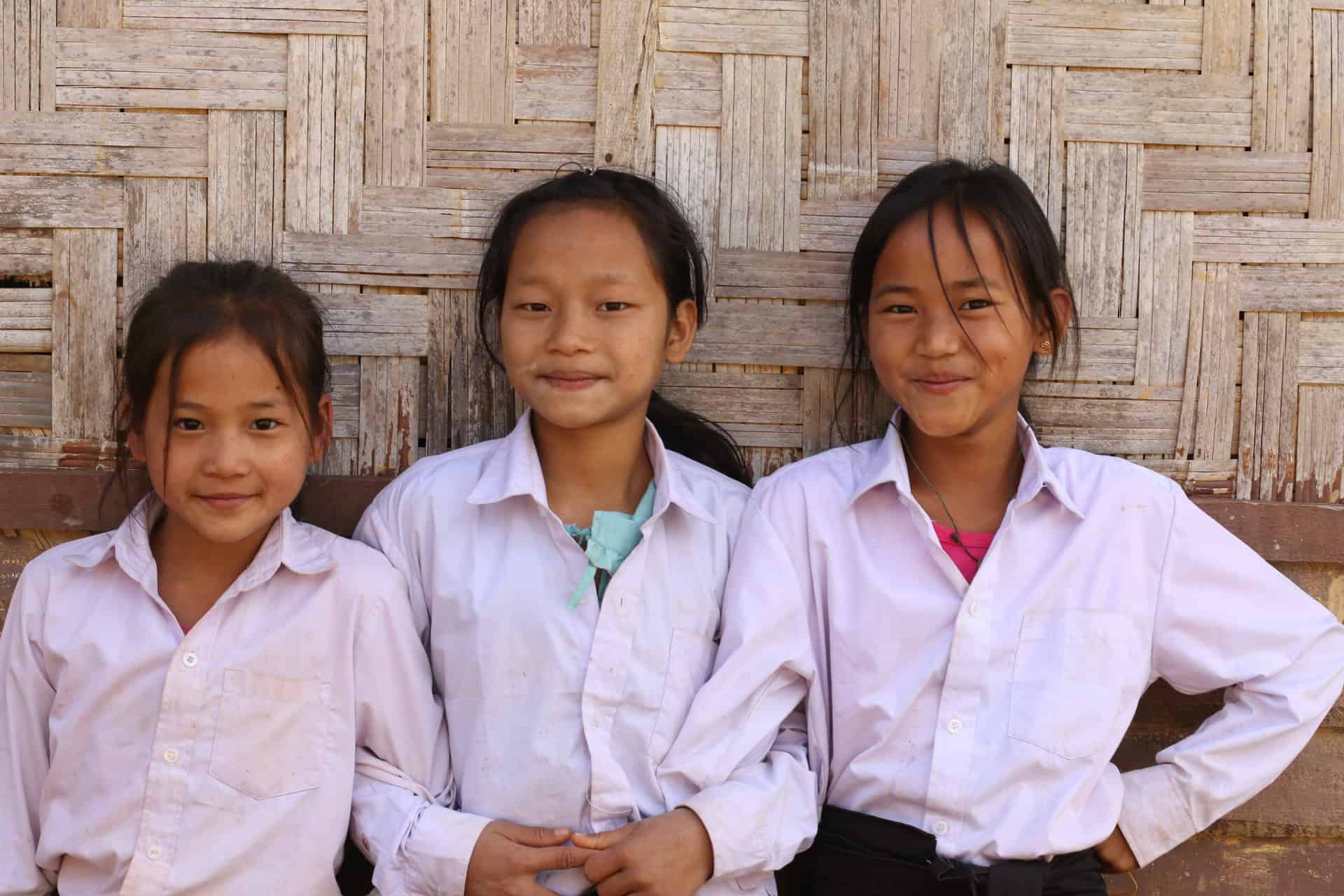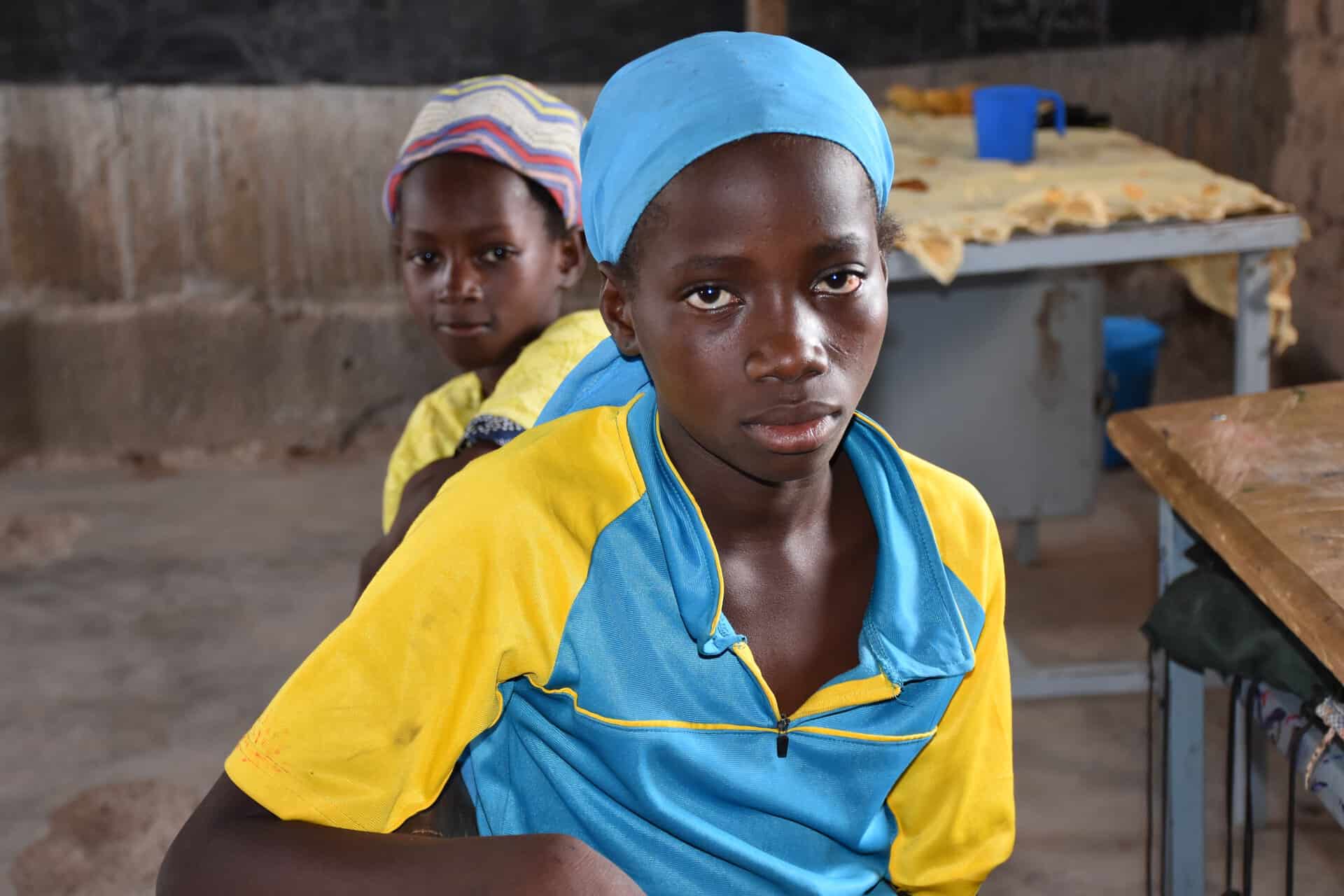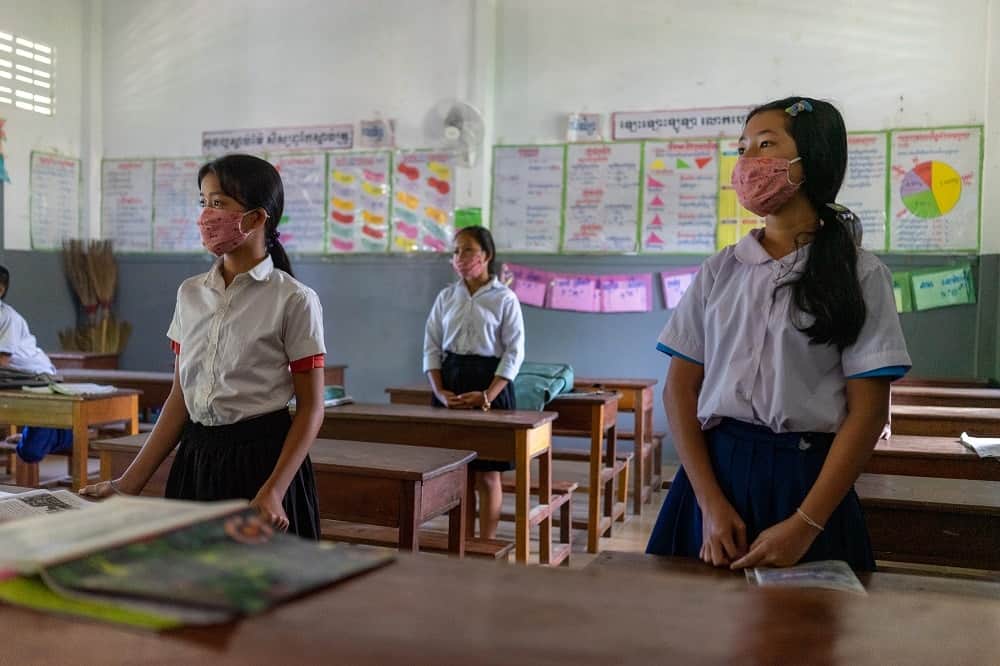Photo credit: Tai Dakin
In Pakchan, a small rural village in Vientiane province, Laos, school lunchtime is not only the highlight of the school day for the 200 students aged 3 to 12, including 108 girls, at Pakchan Primary School, but also a key moment for their development.
Sommathid Sisompheang, a 4th grade teacher at Pakchan Primary School, is responsible for organising school meals in her school and is one of the teachers who contribute to the development of the children. This responsibility has taught her a lot and she has developed her knowledge of nutrition and her project management skills. "I learned how to plan menus, list the ingredients needed, cook and manage the budget and time, she explained, before adding: "Since we started organising school meals, teachers and community members in the village have learned a lot, especially about ingredients and the possibility of having more variety in the menus we prepare.
In a country where malnutrition is a leading cause of child mortality, school meals can play a vital role in a child's survival. According to a report byUNICEFwhich is based on the research of the Lao Social Indicator Survey II (2017), approximately 33 % of children under five in Laos are stunted. This stunting affects children's physical and cognitive development and may prevent them from reaching their potential as adults.
It all starts with education
According to the international non-profit organisation Save the ChildrenOf the 14,000 children who die before the age of five in Laos, more than 40 per cent of deaths are due to malnutrition. According to an analysis by the World BankThe lack of food diversity due to poor feeding practices is the main reason for the high rate of child malnutrition in the country. To address this, Aide et Action trains parents and teachers, many of whom are mothers, in nutrition and health and organizes school meals in nursery and primary schools across the country. Once trained, these parents and other community members are offered jobs as cooks in the schools and play a key role in promoting the health and well-being of children at school and at home, while taking their new knowledge back to their families. Teachers in the schools involved in the project also develop their knowledge of nutrition.
Supporting children's health and education with the active participation of women
When children have access to nutritious meals, their risk of malnutrition and stunting is reduced, which promotes their physical and cognitive development and also encourages them to attend school. A report The Aide et Action survey revealed that 81 % of the students benefiting from the project said that they preferred to eat at school rather than at home because the food was more nutritious, tastier and they liked to eat with their friends.
Knowing that their children will have a nutritious meal at school is also a relief for parents, according to Pa Vang, a mother of three who lives in Nongpor village, Vientiane province. "School lunch gives me confidence because sometimes when I go to the farm for a whole day, I know my girls will be able to have lunch at school.explains Pa Vang. "I don't have much money to buy good food, fruit and milk for my daughters, so I'm happy that they are benefiting from the project."
Mothers like Pa Vang who participate in the project also play a key role in their community and help make a difference for future generations while developing their skills and knowledge. " I cook at the school twice a month and whenever I am free I also come to help because I am happy to be part of the project.explains Pa Vang.
The impact of school closures due to COVID-19
Aide et Action provides school meals in 18 villages in Laos to keep girls and boys in school, and to support mothers like Pa Vang and teachers like Sisompheang. However, the current COVID-19 pandemic has led to school closures, which have meant that schools have been unable to provide school meals. Although the loss of household income due to COVID-19 may also cause households to change their habits regarding the quantity and quality of food, we hope that the trainings we have provided to communities will ensure dietary diversity for children as much as possible.
Since September 2021, despite the challenges related to the pandemic, Aide et Action continues to persevere with the organization of school meals in some schools and will continue the project in other schools as and when they reopen.






